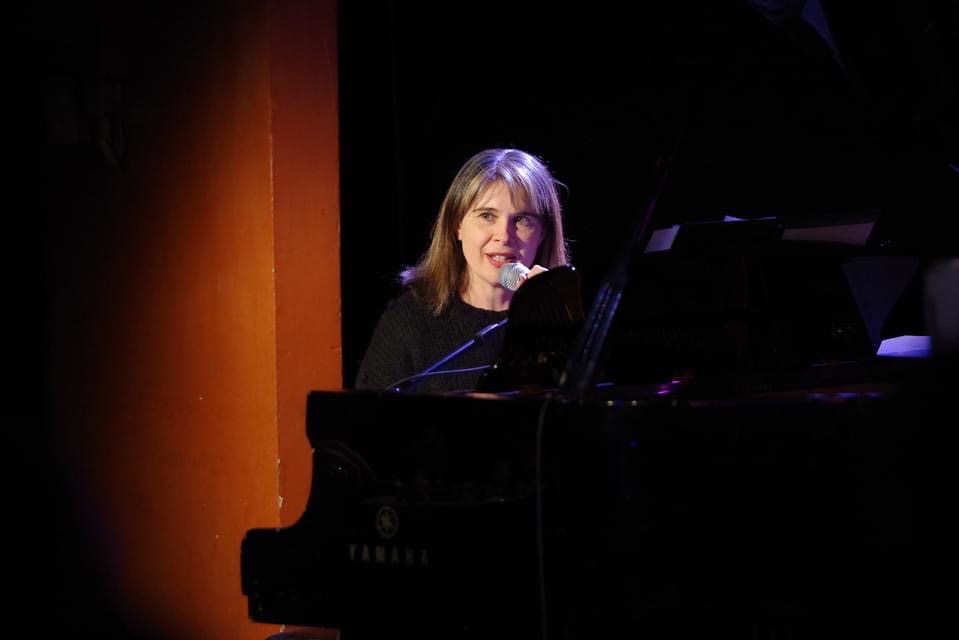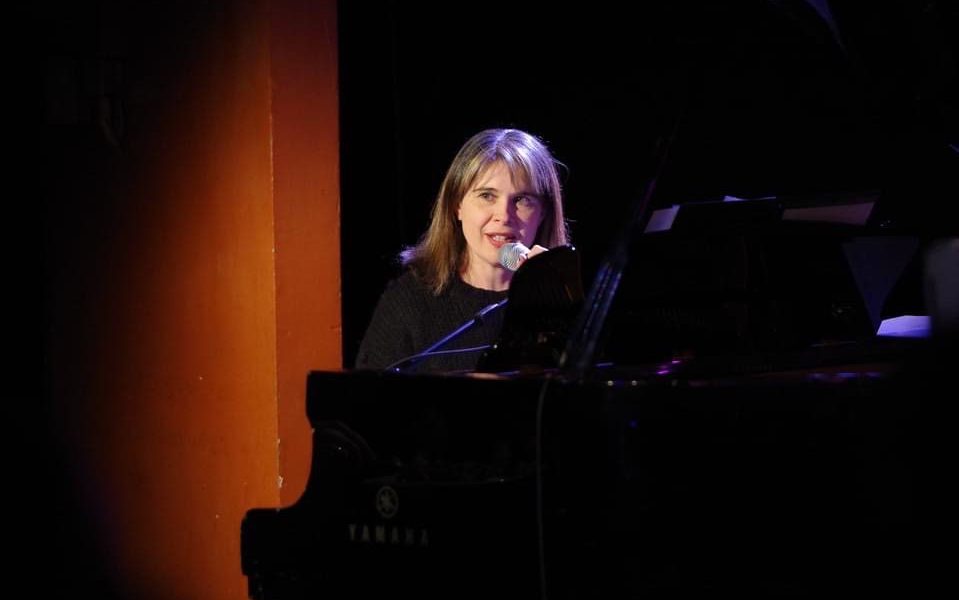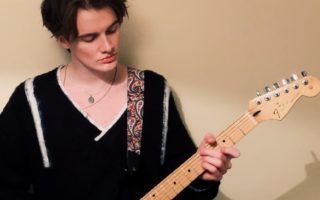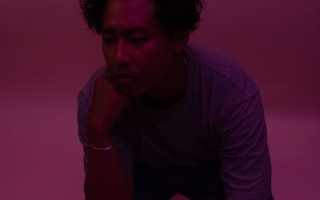
Naadia Sherriff is a composer, musical director, educator, arranger, and pianist. She is a founding member of Hafla Band, Yazz Ahmed’s group, and has also recorded with Kate Dimbleby, ISQ, and has performed at many prestigious venues, including The Barbican. During lockdown, her ‘Beyond The Fear’ release raised an impressive £1000 for the charity Breast Cancer Now. She is also, I have to add, great company and will chat for ages about all things music-related. As well as all this, Naadia is a busy parent and researcher. Platinum Mind felt it was time we placed Naadai in the spotlight. Somehow, this busy, working musician, researcher, and parent, found time to give us an interview.
SS – Sammy Stein
NS – Naadia Sherriff
SS: Tell us briefly about your journey in music.
NS: I’ve played the piano since I was tiny with lessons from age 7, but when I was younger it was mostly for fun and relaxation. It was my favourite thing to do, but I played what I wanted– songs, anything by ear, random noodlings, etc – not enough proper practice. That came later when I went to music college – first for a Classical B.Mus. and then a Postgraduate jazz course. Since then I’ve played and taught full-time and now have started to build in some research, which I love.
SS: You have put out some wonderful albums and been involved in many projects. Is there anything in the pipeline you can tell us about?
NS: Yes, Yazz Ahmed’s next album is just being completed and it’s been a joy to work on that. I’ve also been involved with Kate Dimbleby’s latest recording project along the whole journey and that’s out in April. I’m excited to see both these fantastic projects come to fruition.
SS: Can you tell us more about your research and writing?
NS: I’m part-way through a PhD on jazz and gender, looking at the experiences of women and nonbinary jazz musicians from jazz education right through to those who have had long careers in jazz. I’m on a steep learning curve and loving it.
SS: How is it for you as a female artist? Do you feel there is any prejudice or expectations of women that male performers do not have or do you feel the field is even now?
NS: This is such a huge subject. Yes, there are still a lot of prejudices and gendered expectations around. That said – there’s also a lot more awareness of it now, and many people are thinking in different ways, which is making a positive change. It’s not just gender and sexual identity that we need to think about though but diversity in all areas. For example, race, disability, and class need to be more in the minds of promoters, bandleaders, and journalists. If the networks expand, audiences will grow, and the whole scene will benefit.
SS: If you were to advise a young performer just starting, are there any lessons you might pass on?
NS: Young performers seem to have it a lot more together than I ever did, so I think it’s more the other way around. But, I would say, have a strong work ethic, be real, balance the books every month if you can, and keep in mind why you got into it – because you LOVE music and you can’t imagine doing anything else.
SS: Looking ahead – what would you like to have achieved in say, five or ten years’ time music-wise?
NS: I’d really like to be making a difference – I don’t know if that will be through playing, education, campaigning, research, or advocacy.
SS: Is it difficult to fit music in with other aspects of your life?
NS: YES, and that has been the case since I had my first child 16 years ago. I constantly ask myself why I’m so short of time, and it’s really because of co-raising a family with my husband. Before having the kids, I would regularly practice upwards of three hours a day and go to loads of gigs, as well as gigging and rehearsing all the time. Not anymore! (I don’t regret it, and I’m not depressed about it, but I want to be honest about it in case others reading it identify).
SS: How have you found supportive critics, editors, and others?
NS: There are supporters aplenty in jazz. I’ve had an embarrassing amount of affirmation and praise over the course of my career. I’m pretty sure there are a whole bunch of other people who consider me to be completely mediocre – but they say it behind my back, so I don’t tend to find out (smiles).
SS: How do you find people to work with – by that I mean those whom you are producing, playing alongside, and so on?
NS: Being long-ish in the tooth helps here. I’ve just accumulated people over many years, and one job tends to lead to another, but you have to initiate things yourself sometimes too. It’s really hard to bite the bullet, and just phone people – not everyone will be up for it, but you have to take a deep breath and just ask sometimes. That’s how some of my most valued musical relationships have come about. Mentors really help too. I’m so grateful to my teachers and Nikki Iles in particular – for connecting me with people. Having a gig where you book the band is also a brilliant way to connect with people. If you can offer a decently paid bit of work, then you can use that to make some good connections.
Talking with Naadia, you get a sense of a complete, balanced musician with a good grip on both her family and musical life. Long may it continue, and long may we continue to hear of new and exciting projects this musician, researcher, educator, and all-round professional is involved in.
You can find out more about what Naadia is up to, future and past projects, and more by checking out her website here




